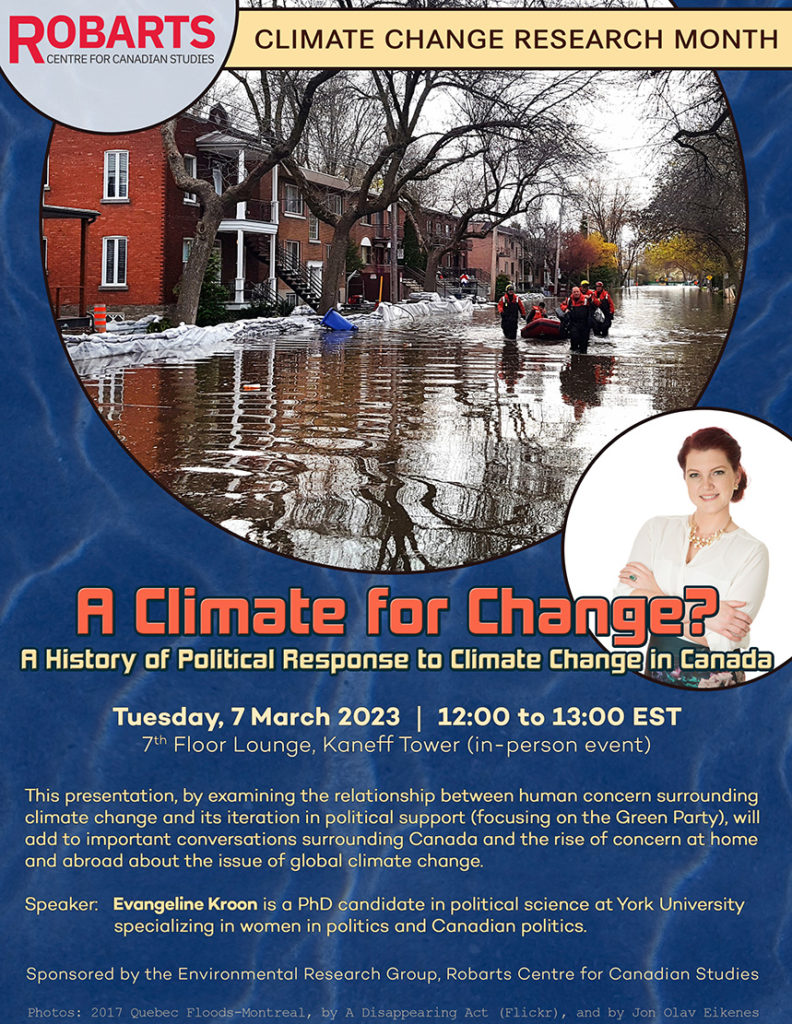A Climate for Change? A History of Political Response to Climate Change in Canada
Climate Change Research Month
Date and time: Tuesday, 7 March 2023 | 12:00 EST
Location: 7th floor lounge, Kaneff Tower (in-person event)
Within the context of the current global discussion on climate change, Canada’s political response to the ongoing climate crisis effects how our country is perceived on the international stage. Canada’s historical and contemporary position as an energy extraction state is key to the nation’s identity and economy, influencing its political decisions and it disproportionately contributes to, and suffers from, the consequences of global warming, and this tension is observable in current political discourse. This discussion begins with brief a global analysis of Green parties in EU and Australasia parliamentary systems. Several key themes were found to contribute to the emergence and success of Green parties globally and these themes are then compared to the history of the Green Party in Canada to analyze where the similarities and differences lie. This presentation, by examining the relationship between human concern surrounding climate change and its iteration in political support, will add to important conversations surrounding Canada and the rise of concern at home and abroad about the issue of global climate change.
Speaker Bio:
Evangeline Kroon is a PhD candidate in political science at York University specializing in women in politics and Canadian politics. Her current research centers on political expressions of climate anxiety with a focus on the federal and provincial Green parties in Canada. Previously she has published on narratives of female violence in post-apocalyptic pop culture, and this research interest has remains relevant in her current research as she examines our understandings of future-oriented imaginaries through the lens of climate crises. This research also blends seamlessly with her personal love of nature, quest for ecological sustainability and feminism. She lives and works and tries to keep plants alive in her apartment in Tkaronto, which has been care-taken by the Anishinabek Nation, the Haudenosaunee Confederacy, and the Huron-Wendat. It is now home to many First Nation, Inuit and Métis communities and she acknowledges the current treaty holders, the Mississaugas of the Credit First Nation.
Sponsor: Environmental Research Group, Robarts Centre for Canadian Studies


